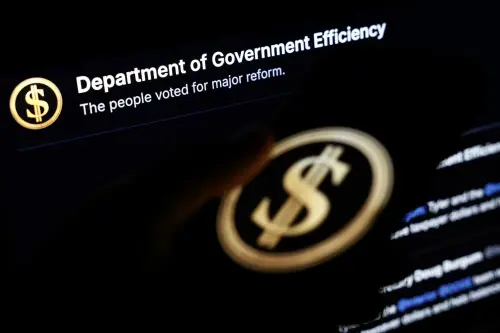Starting with the United Kingdom’s referendum to withdraw from the European Union last summer, a new anti-establishment fervor has emerged in elections around the world. The nativist and populist discourse from Austria’s Norbert Hofer, France’s Marine Le Pen, and Donald Trump in each of their presidential campaigns offered striking alternatives to globalization.
Even in Germany, which has a strong tradition of liberal democracy, the far-right Alternative for Germany (AfD) party recently won enough votes to enter parliament—this is the first time such a party has done so in Germany since 1949. Robert Bosch Senior Fellow Constanze Stelzenmüller called the outcome “a somber day for you, for me, and for democrats across the West.”
On both sides of the Atlantic, populist and nationalist sentiments appear to be growing. So what are Brookings experts saying about the rise of these anti-establishment parties, candidates, and promises?
1) POPULIST REFORMS CAN BE BOTH PARADOXICAL AND SELF-DEFEATING
In a May report, Senior Fellows Jonathan Rauch and Benjamin Wittes explain how many of the safeguards against populism implemented by America’s founders, like the Electoral College and representative election of U.S. senators, have been eroded by decades of reforms focused on increasing public involvement and relegating skilled intermediaries. In a recent episode of the Brookings Intersections podcast, the authors note the irony of these reforms and the “paradox of populism.”
According to Rauch and Wittes, professional intermediaries like political parties, career politicians, and experts actually help create more inclusive and representative political systems—the underlying goal of participation-based reforms. The authors point out that, historically, parties and party bosses have done a good job at selecting candidates to run for offices; that campaign finance reform could lead to more polarization and less accountable representatives; and too much transparency limits Congress’s ability to make compromises and form coalitions.
Voters are also incapable of assuming all the responsibilities that participation-based reformers wish for, Rauch explains. He argues that individual voters are relatively misinformed and biased at the polls—but that their actions are actually rational. “Given their vote’s infinitesimal effect,” he writes, “they are rational to limit their investment in policy knowledge and instead to treat their vote as an expression of protest, prejudice, or tribal solidarity.”
So while increasing direct participation is a common alleviation for what ails America’s political discourse (appropriately called the “chicken noodle soup of political reforms” by the authors), it may not be an effective strategy for creating more effective governance.
2) POPULISTS ARE SOCIAL MEDIA SAVVY
Prior to the most recent elections In Germany, Angela Merkel’s Christian Democratic Party enjoyed twice the support of the far-right Alternative for Germany party, but only half the number of likes on Facebook. Dutch far-right politician Geert Wilders also has significantly more Twitter followers than most other Dutch politicians, including a slight advantage over the current prime minister. It seems that across partisan and national lines, those who represent the political extremes enjoy large followings on social media. Earlier this year, Brookings Governance Studies experts Bill Galston and Clara Hendrickson explored why populists are winning online, and whether or not populists’ social media success has had any effect at the ballot box.
Hendrickson and Galston find that several factors may contribute to the success of the populist message on social media. For one, platforms like Facebook and Twitter allow politicians to connect directly with constituents, closely aligning with a cornerstone of populism: “rule by the people.” Similarly, social media makes it possible for anyone’s voice to be elevated, not just pundits’ and plutocrats’.
According to Nonresident Fellow Matteo Garavoglia, populism is a form of communication that pits “we” the many against “them”—the few, privileged, and elite. Populism is also, according to Garavoglia, “about ignoring facts, ignoring data for the benefit of rhetoric,” which allows populist discourse to focus more heavily on emotional appeals.
Hendrickson and Galston support this claim, adding that populist leaders can utilize social media to issue short, emotional responses to national tragedies in order to “reinforce the tendencies of some and spark feelings of outrage in others.”
3) CONSTRUCTIVE POPULISM COULD INSPIRE GOOD
Kemal Derviş, vice president and director of the Global Economy and Development program, believes the effectiveness of populists’ messaging warrants a need for “constructive populism.”
Derviş recognizes that, compared to populists’ one-liners and campaign slogans, moderates’ researched refutations don’t inspire. Derviş calls for a simple, humanist, and global message that can resonate with millions but stay rooted in fact. He believes that message should include, among other things, plain language and emphasize human rights. He cites the rhetoric of Franklin Roosevelt in the 1930s as an example.
“The way to overcome identity politics and irresponsible populism,” he argues, “is not to meet it in the middle or to fight it with detailed technical analysis. The way to avoid disaster is constructive populism: simple, accurate, and always sincere.”
4) ANTI-ESTABLISHMENT PARTIES OFTEN STRUGGLE TO GOVERN
In parliamentary systems that rely on parties forming coalition governments, it is possible for one party to win the largest share of votes but not the ability to govern; or, as Senior Fellow Shadi Hamid has written: “It is possible to win without winning.”
According to Hamid, even if Geert Wilders’ far-right Party for Freedom (PVV) had managed to earn a plurality of seats in last year’s Dutch election, other centrist parties would have likely formed a coalition government that excluded the PVV and denied Wilders leadership. In reaction to the rising wave of populism, Hamid argues that the most effective tool to stop a populist is instating the right electoral system.
A presidential system that characteristically has two strong parties does not enjoy the same safety net of coalition governments. Consequently, in America’s “winner-take-all” system, a candidate who earns only 51 percent of the electorate is awarded 100 percent of power.
There are still mechanisms to prevent populists within a presidential system, Hamid writes, but only when “there is basic consensus over what it means to be a citizen and what it means to be a nation,” which he believes is currently lacking in the American political system. Polarization has weakened the center in American politics and, according to Hamid, it is “nearly impossible to imagine the U.S. moving from majoritarian to consensual democracy.”
5) ECONOMIC INSECURITY IS TIED TO THE RISE OF ANTI-ESTABLISHMENT CANDIDATES
Nearly ten years after the beginning of the Great Recession, and despite the U.S. economy seemingly back on track, the scars of the financial crisis have not completely healed in the U.S. or Europe. In America, although the unemployment rate is back to pre-recession levels, millions are still out of work or facing downward mobility.
In a paper for the Brookings Papers on Economic Activity released earlier this year, Yann Algan, Sergei Guriev, Elias Papaioannou, and Evgenia Passari analyzed the relationship between unemployment and support for anti-establishment parties, specifically in Europe. Their study, which explores data from 26 countries, captures major shifts in voting behavior after the financial crisis.
In Europe, increases in unemployment rates were closely correlated with increases in both support for populist or anti-establishment parties, and with declining trust in political institutions.
The chart below shows how populist candidates gained the most support in areas with the highest rates of unemployment. That relationship is most clear in the southern region where countries like Greece, Italy, Portugal, and Spain have seen both high levels of unemployment and pervasive nationalist movements.

Although populism is more likely to resonate with individuals with lower levels of income and education, as Matteo Garavoglia explains, the message reaches far beyond those specific demographics. As Governance Studies Senior Fellow John Hudak points out, Hillary Clinton actually outperformed Donald Trump among voters earning less than $50,000 annually. Hudak also explains that while President Trump handily won more votes from members of the white working class, there are many other groups who are economically marginalized, “and most of them voted for someone other than Donald Trump.”
6) CITIES MAY BE THE BARRIERS AGAINST A POPULIST TIDE
In response to the growing wave of populism, Bruce Katz and Luise Noring, experts from the Centennial Scholar Initiative at Brookings, analyzed several identities that cities in the United States and Europe might assume. Among the possibilities, the authors believe cities might resist the populist tide, pursue progressive agendas, and prosper from their networks and resources.
Since the election of President Trump, there have been many examples of cities opposing his administration’s policies by declaring themselves sanctuary cities or recommitting to the Paris Climate Accord. Cities across America have also been exploring new progressive policies to benefit their citizens like raising the minimum wage.
The federal government is oftentimes the largest investor in cities, according to Katz and Noring, and under the Trump administration, grants have already been threatened in response to sanctuary cities. Despite that, the authors believe “as 2017 proceeds, cities will be on the forefront of opposition to national efforts to weaken health care security, safeguards for the climate, and consumer protections.”
Katz and his co-author Jeremy Nowak have been focused on the impact of these local power shifts and have developed a roadmap for addressing these social, economic and environmental challenges in the upcoming Brookings Institution Press book, “The New Localism.”
LEARN MORE
For more on the rise and consequences of populism, watch Brookings experts address the economic and political issues inducing this new wave of anti-establishment politics at an event hosted in April, and listen to E.J. Dionne and Constanze Stelzenmüller discuss the same question in an episode of Intersections podcast. Be sure to also follow content from the Brookings Center on the United States and Europe and Robert Bosch Foundation Transatlantic Initiative.
The Brookings Institution is committed to quality, independence, and impact.
We are supported by a diverse array of funders. In line with our values and policies, each Brookings publication represents the sole views of its author(s).





Commentary
6 things to know about rising anti-establishment politics in the US and Europe
October 19, 2017